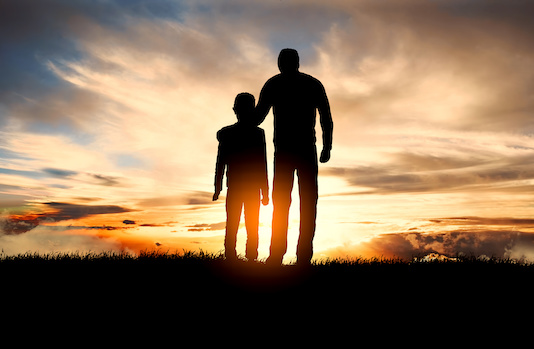Some may think it would have been nicer to wait until after the Coronavirus debacle was largely over before penning this on March 17, at the beginning of what appears to be the painful shutdown of our country. After all, there will be plenty of time for introspection, analysis, and course correction — and second guessing, finger pointing, and levying blame – after the worst of the crisis has passed.
Still, I thought this would be an opportune time to peck out a few ramblings, not only because they relate to our current difficulties but also because readers might have more time for messages like this if they’re at home instead of at work, at the school recital, at the 76ers, at the gym, in restaurants, at the casinos, or on their favorite St. Paddy’s Day bar stool.
Why did we think that government, of all things, should be entrusted to do something as important, complicated and demanding as parenting?
Three thoughts.
Closing schools has created quite a bit of consternation about how children are going to be fed. Public schools, after all, have assumed the responsibility of feeding kids during school and oftentimes before and afterwards. Now members of Congress, governors and mayors are suggesting that the National Guard carry meals to kids at home. To be sure, politicians can be applauded for recognizing problems and trying to develop solutions, regardless I suppose of whether they are motivated by their sworn oaths, civic responsibility, or political opportunism. However, this crisis gives us an opportunity to reflect on the role of government versus the role of parents when it comes to caring for children. I cling to the quaint notion that parents are responsible for providing for their kids. Fathers traditionally have shouldered an enormous part of this responsibility. But when the social crisis of fatherlessness reaches the epidemic proportion that it has today, then one of the sorry implications of outsourcing fatherhood to the government is greatly exacerbated when a medical crisis like the current one occurs.
A related problem concerns closing daycare centers, Head Start, and other early childcare facilities. Politicians are discussing the difficulty that single mothers are having in making alternative arrangements for their kids while at work, assuming that their employers have not been forced to close. Here again, a problem that has metastasized over the last fifty years comes into better focus. Other species – think of birds – decided long ago that it takes two parents to raise their young, often with one guarding the nest while the other hunts. As humans, we felt the same as our feathered friends for thousands of years, that is, before we let a variety of forces in recent decades render fatherhood optional, passé or even sinister. What were we thinking? And so, again, we watch government scrambling to take on the roles that two parents, working together, were designed to fulfill. Why did we think that government, of all things, should be entrusted to do something as important, complicated and demanding as parenting?
Lastly, the government is considering sending out checks to spur the wounded economy. Politicians are ringing their hands about how people who are laid off will provide for themselves and their families. Their concerns are well-placed. Safety nets are appropriate. As charitable people, our best instincts serve to help those in need. At the same time, however, whatever happened to another quaint notion, that everyone should have six months of expenses – for food, rent, mortgage, car payments, insurance, healthcare — set aside for an emergency like the loss of a job? I can hear the howls: impossible, too hard, too unrealistic in today’s demanding society. But when was it ever easy? Is it impossible, or have our priorities transferred our personal responsibilities to government bodies? And at what cost?
But the bigger idea here is the relationship between fatherlessness and financial stress in a crisis. After all, almost fifty percent of kids living with single mothers do so below the poverty line. These fatherless kids are struggling on a good day, before a new virus decides to upend the world. Chances are good that these moms don’t have “Build a six month contingency fund” at the top of their to-do lists. And so the crisis naturally is going to hit families harder where a provider is absent in one of the key roles that fathers traditionally play. Is that surprising to anyone?
I encourage everyone to work together and contribute whatever we can to help others through the rough times ahead. Then, when the smoke clears, I believe it would be beneficial for all of us – as individuals, as parents, and as a country at large – to consider how and why we have sacrificed our ability to fend for ourselves and our families while turning the government into surrogate fathers.
Stay safe.
Bill McCusker






